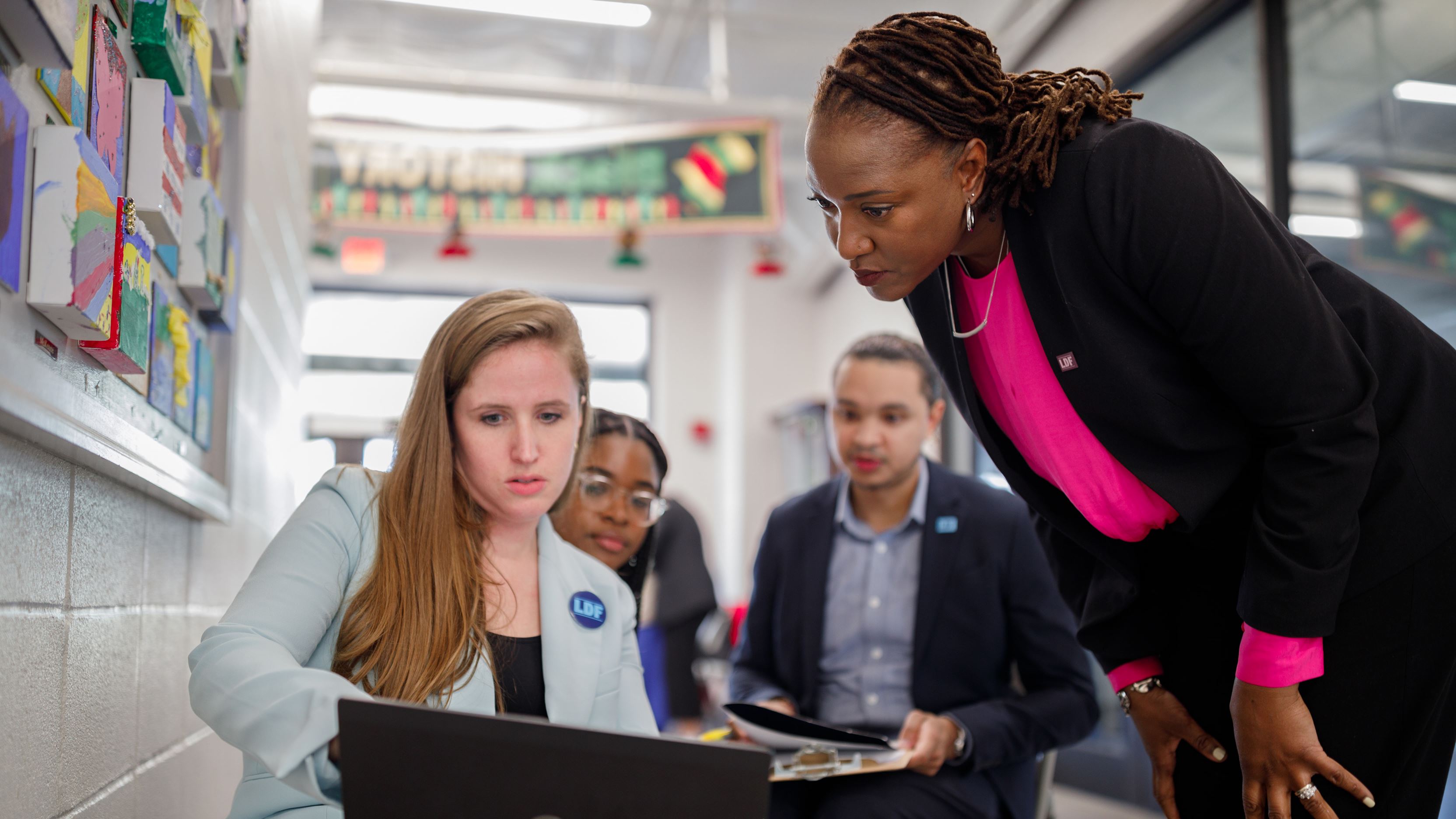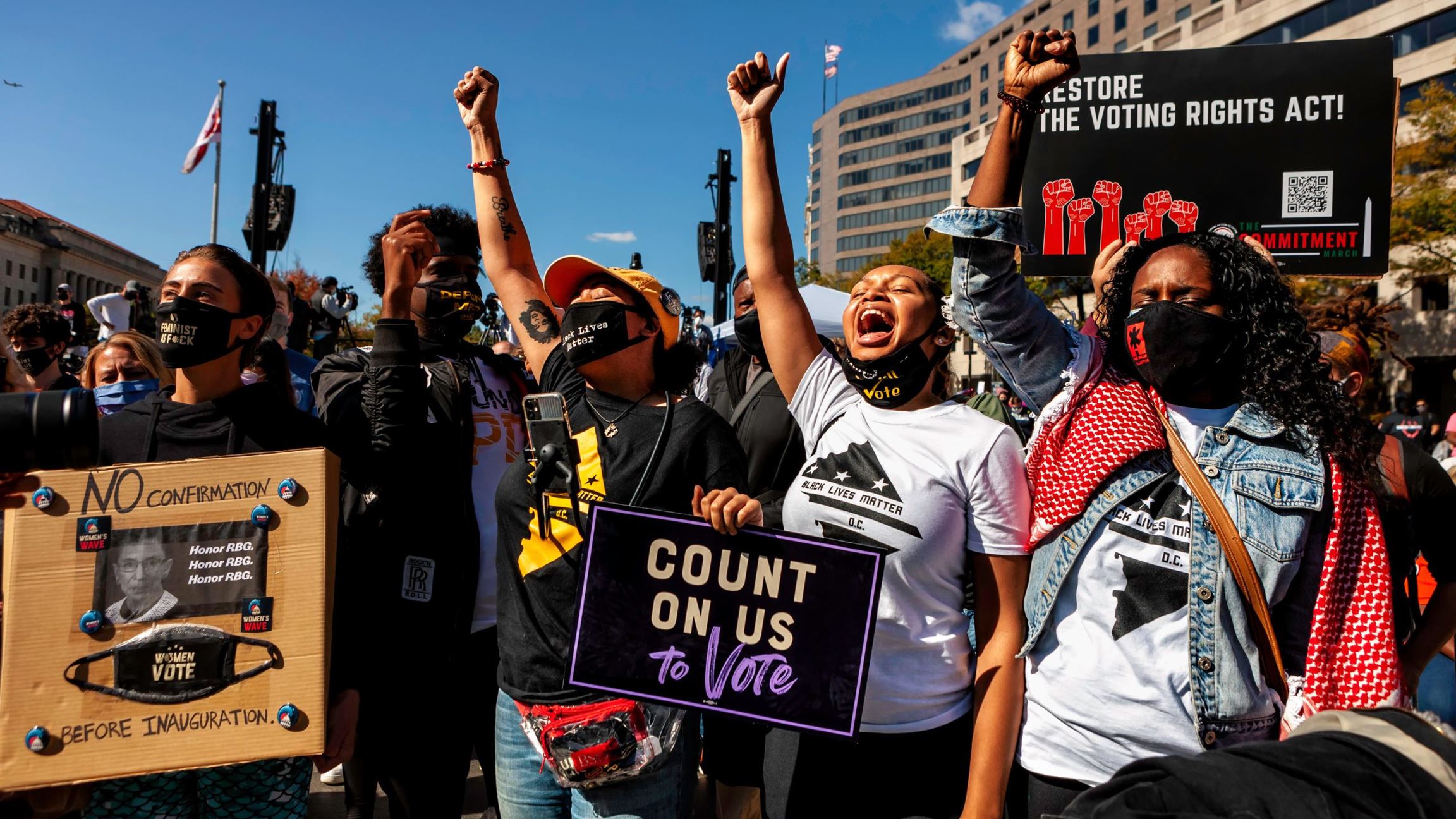


The Voting Rights Act of 1965 protected the right to vote for all citizens, ensuring voters of color had the safeguards necessary to participate fully in our country’s political process.
Following the Supreme Court’s 2013 Shelby County v. Holder decision, those protections stripped away core protections of the act. Since then, states and localities have unleashed voter suppression laws and practices that make it harder for Black people and other people of color to exercise the fundamental right to vote.
For more than a decade, LDF has prepared voters for elections by engaging volunteers on Election Day. Black Voters on the Rise equips voters with information needed to advance voting rights and support Black political participation. Through our on-the-ground advocacy, monitoring, and public education campaigns, we are ensuring our access to the vote.
Synonyms: Election Worker, Poll Commissioner, Election Judge, etc.
Poll workers are official election workers who are hired to administer elections. Poll workers generally work for and are paid by their local election office or other local election authority—not any candidate, campaign, or third party. Poll workers check in voters and ensure every voter can effectively cast their ballot.
Synonyms: Poll Observer, Election Observer, etc.
Poll watchers are designated by candidates and political campaigns to observe the voting process. Their job is to notify election officials of any infraction of law. While a watcher has access inside polling sites and can keep notes on the conduct of the election, they are not allowed to intimidate voters, campaign, or disrupt the voting process. Many states require poll watchers to be identified and approved in advance of elections and to wear a badge or other identification indicating their role at the poll site.
Synonyms: Election Monitor, Election Protection Volunteer, etc.
Poll monitors are nonpartisan volunteers who are positioned in or near polling sites to assist voters by answering questions about their voting rights. Poll monitors also observe and record issues with election access and administration so they may notify election officials and report concerns to the nonpartisan Election Protection hotline, 866-OUR-VOTE.
DISCLAIMER: Roles, regulations, and titles vary across states – it is important to learn about who administers and observes elections in your state by consulting your own state’s laws.

Voting is so much more than the presidential election. Our state, municipal, and county-level elected officials make a wide range of decisions that affect your daily life. We’ve compiled an index of some of the major elected positions in state and local government and their functions to help you prepare to vote and become acquainted with how state and local government impacts your life and your community.